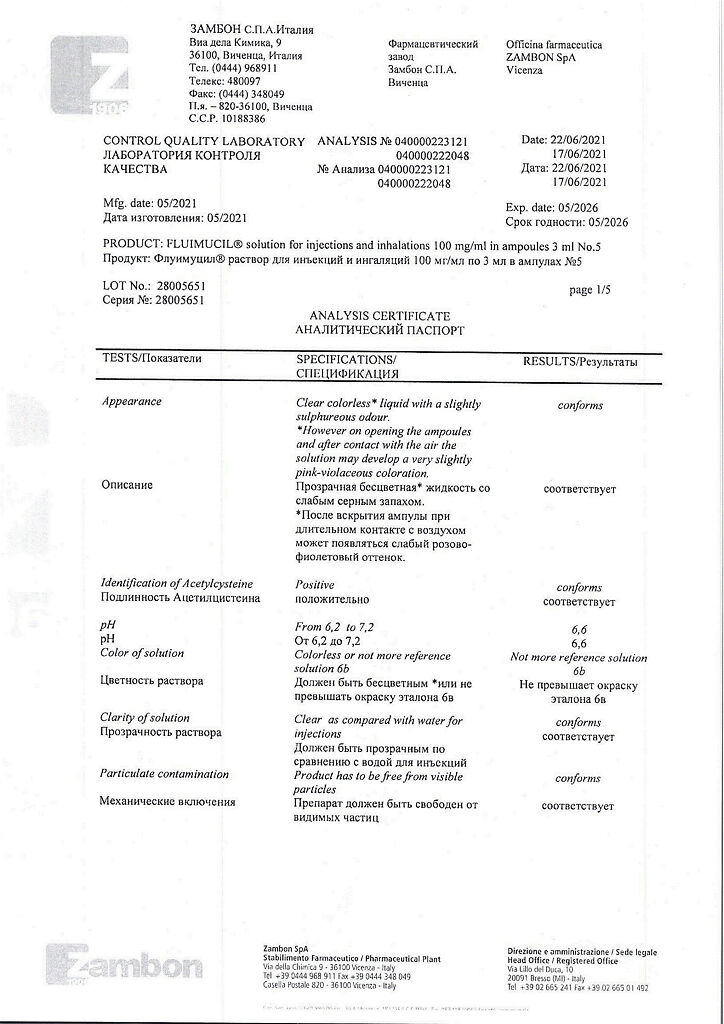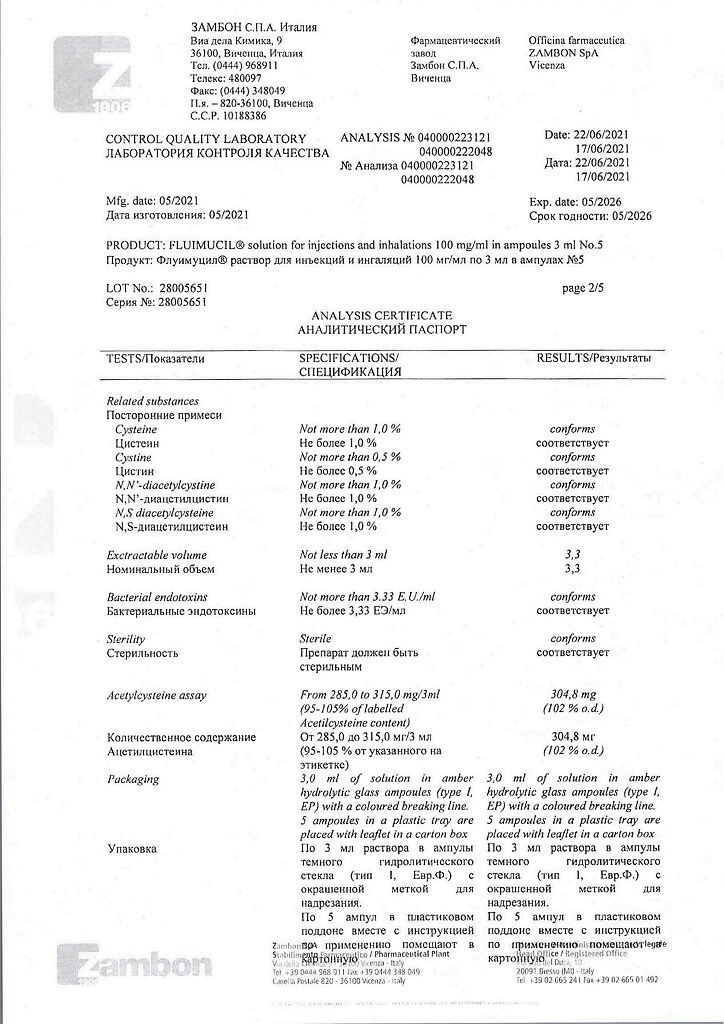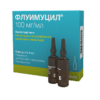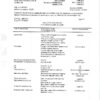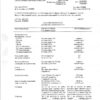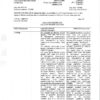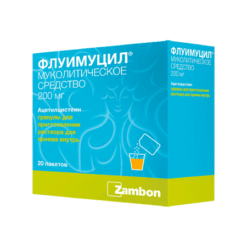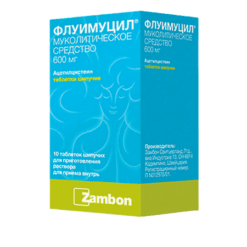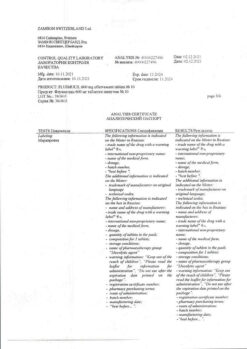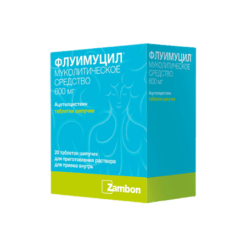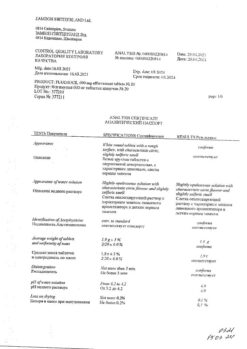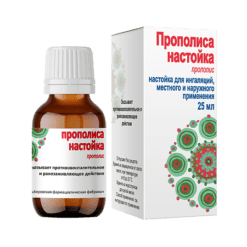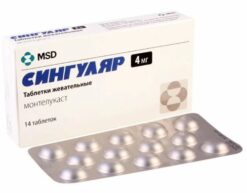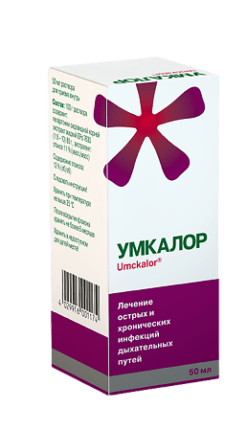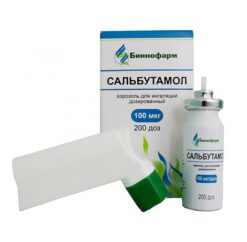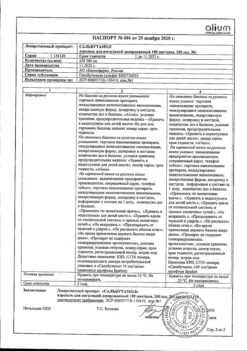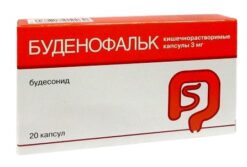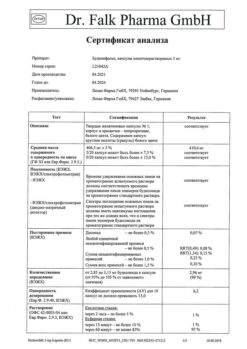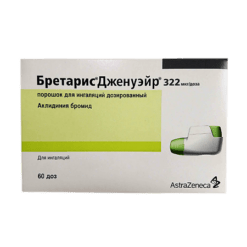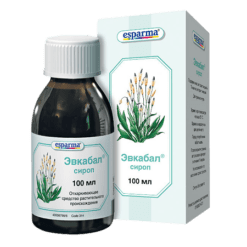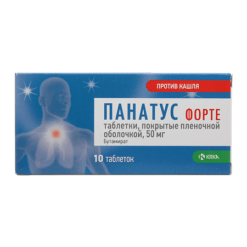No products in the cart.
Fluimucil, 100 mg/ml 3 ml 5 pcs
€1.00
Out of stock
(E-mail when Stock is available)
Description
Pharmgroup:
A expectorant (mucolytic) drug.
Pharmic action:
Fluimucil is a mucolytic drug. Liquefies sputum, increases its volume and facilitates its separation. Action of acetylcysteine is related to the ability of its sulfhydryl groups to break intra- and intermolecular disulfide bonds of acidic mucopolysaccharides of sputum, which leads to depolarization of mucoproteins and reduction of sputum viscosity. Remains active in the presence of purulent sputum.
Increases secretion of less viscous sialomucins by bocalytic cells, reduces bacterial adhesion on the epithelial cells of the bronchial mucosa. It stimulates bronchial mucosa cells, the secret of which lyses fibrin. It has the same effect on the secretion produced by inflammatory diseases of ENT organs.
It has an antioxidant effect due to the presence of SH-group that can neutralize electrophilic oxidizing toxins.
Acetylcysteine easily penetrates cells and is deacetylated to L-cysteine from which intracellular glutathione is synthesized.
Glutathione is a highly reactive tripeptide, a powerful antioxidant and cytoprotector that neutralizes endogenous and exogenous free radicals and toxins. Acetylcysteine prevents depletion and promotes increased synthesis of intracellular glutathione that participates in redox processes of cells, contributing to detoxification of harmful substances. This explains the effect of acetylcysteine as an antidote in paracetamol poisoning.
Protects alpha1-antitrypsin (elastase inhibitor) from inactivating effect of BOSI – an oxidizing agent produced by myeloperoxidase of active phagocytes. It also has anti-inflammatory effect (by inhibiting the formation of free radicals and active oxygen-containing substances responsible for the development of inflammation in lung tissue).
Indications
Indications
Respiratory diseases accompanied by the formation of high-viscosity sputum (acute and chronic bronchitis, pneumonia, bronchiectasis, cystic fibrosis, bronchial asthma).
Pharmacological effect
Pharmacological effect
Pharmaceutical group:
expectorant (mucolytic) agent.
Pharmaceutical action:
Fluimucil is a mucolytic drug. Liquefies mucus, increases its volume and facilitates its separation. The action of acetylcysteine is associated with the ability of its sulfhydryl groups to break intra- and intermolecular disulfide bonds of acidic mucopolysaccharides of sputum, which leads to depolarization of mucoproteins and a decrease in sputum viscosity. Remains active in the presence of purulent sputum.
Increases the secretion of less viscous sialomucins by goblet cells, reduces the adhesion of bacteria to the epithelial cells of the bronchial mucosa. Stimulates mucous cells of the bronchi, the secretion of which is lysed by fibrin. It has a similar effect on the secretions formed during inflammatory diseases of the ENT organs.
It has an antioxidant effect due to the presence of an SH group that can neutralize electrophilic oxidative toxins.
Acetylcysteine easily penetrates into the cell and is deacetylated to L-cysteine, from which intracellular glutathione is synthesized.
Glutathione is a highly reactive tripeptide, a powerful antioxidant and cytoprotector that neutralizes endogenous and exogenous free radicals and toxins. Acetylcysteine prevents exhaustion and helps increase the synthesis of intracellular glutathione, which is involved in the redox processes of cells, promoting the detoxification of harmful substances. This explains the effect of acetylcysteine as an antidote for paracetamol poisoning.
Protects alpha1-antitrypsin (elastase inhibitor) from the inactivating effects of HOCl, an oxidizing agent produced by myeloperoxidase of active phagocytes. It also has an anti-inflammatory effect (by suppressing the formation of free radicals and reactive oxygen-containing substances responsible for the development of inflammation in the lung tissue).
Special instructions
Special instructions
Prescribed with caution to patients prone to pulmonary hemorrhage, hemoptysis, with liver disease, kidney disease, adrenal dysfunction, patients with bronchial asthma and obstructive bronchitis (and under systematic monitoring of bronchial patency).
When dissolving acetylcysteine, you must use glass containers and avoid contact with metal and rubber surfaces. When opening the package, there may be a smell of sulfur; this is the smell of the active substance, and not evidence of poor quality of the drug.
The Fluimucil ampoule is opened before use. An opened ampoule can be stored in the refrigerator for 24 hours. Using the drug from a previously opened ampoule for injection is prohibited.
Fluimucil solution should not come into contact with rubber and metal surfaces.
Active ingredient
Active ingredient
Acetylcysteine
Composition
Composition
Active ingredient:
acetylcysteine 300 mg;
Excipients:
disodium edetate – 3 mg;
sodium hydroxide – 74 mg;
water for injection – up to 3 ml
Contraindications
Contraindications
Hypersensitivity to acetylcysteine, peptic ulcer of the stomach and duodenum in the acute stage,
The drug should be prescribed with caution to patients with liver and kidney diseases.
Side Effects
Side Effects
From the digestive system: rarely – heartburn, nausea, vomiting, diarrhea, stomatitis.
Allergic reactions: rarely – skin rash, itching, urticaria, bronchospasm.
Other: rarely – nosebleeds, tinnitus, collapse, decreased platelet aggregation.
Local reactions: with parenteral use, a slight burning sensation at the injection site is possible; when used by inhalation – reflex cough, local irritation of the respiratory tract, stomatitis, rhinitis; rarely – bronchospasm (in this case it is necessary to prescribe bronchodilators).
Interaction
Interaction
The combined use of acetylcysteine with antitussives may increase sputum stagnation due to suppression of the cough reflex.
When used simultaneously with antibiotics such as tetracyclines (excluding doxycycline), ampicillin, amphotericin B, they may interact with the thiol group of acetylcysteine, which leads to a decrease in the activity of both drugs.
Therefore, the interval between taking these drugs should be at least 2 hours.
The simultaneous use of acetylcysteine and nitroglycerin can lead to an increase in the vasodilating and disaggregating effects of the latter.
Acetylcysteine eliminates the toxic effects of paracetamol.
Overdose
Overdose
Acetylcysteine, when taken in doses of 500 mg/kg per day, did not cause signs and symptoms of overdose.
Storage conditions
Storage conditions
At room temperature (not higher than 25 °C).
Shelf life
Shelf life
3 years.
Manufacturer
Manufacturer
Zambon S.p.A., Italy
Additional information
| Shelf life | 3 years. |
|---|---|
| Conditions of storage | At room temperature (not above 25 °C). |
| Manufacturer | Zambon S.p.A., Italy |
| Medication form | solution for injection |
| Brand | Zambon S.p.A. |
Other forms…
Related products
Buy Fluimucil, 100 mg/ml 3 ml 5 pcs with delivery to USA, UK, Europe and over 120 other countries.


